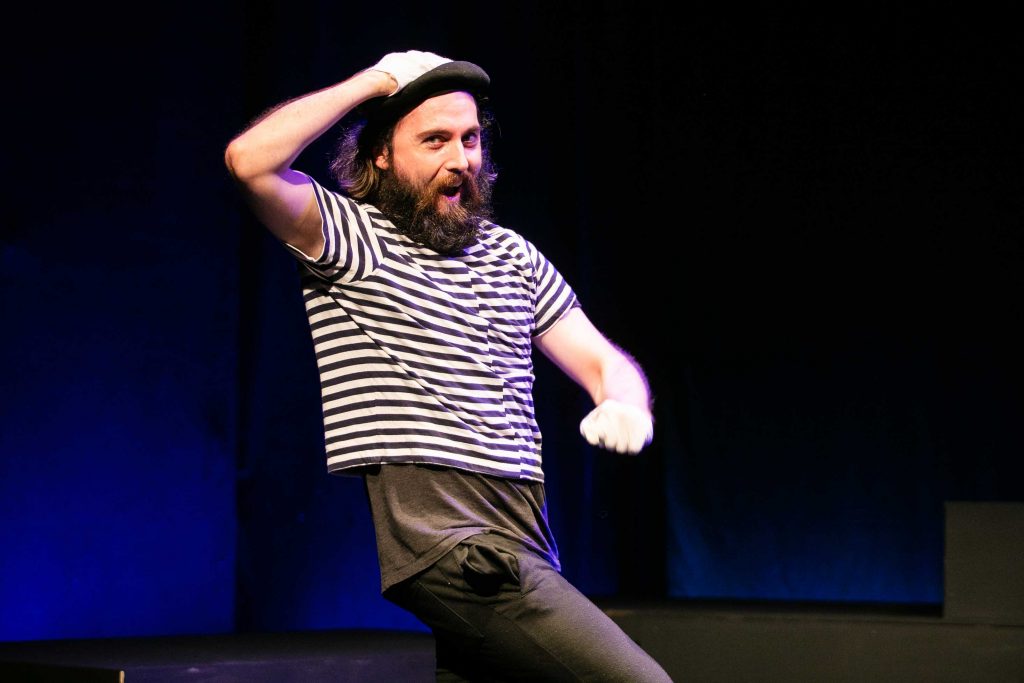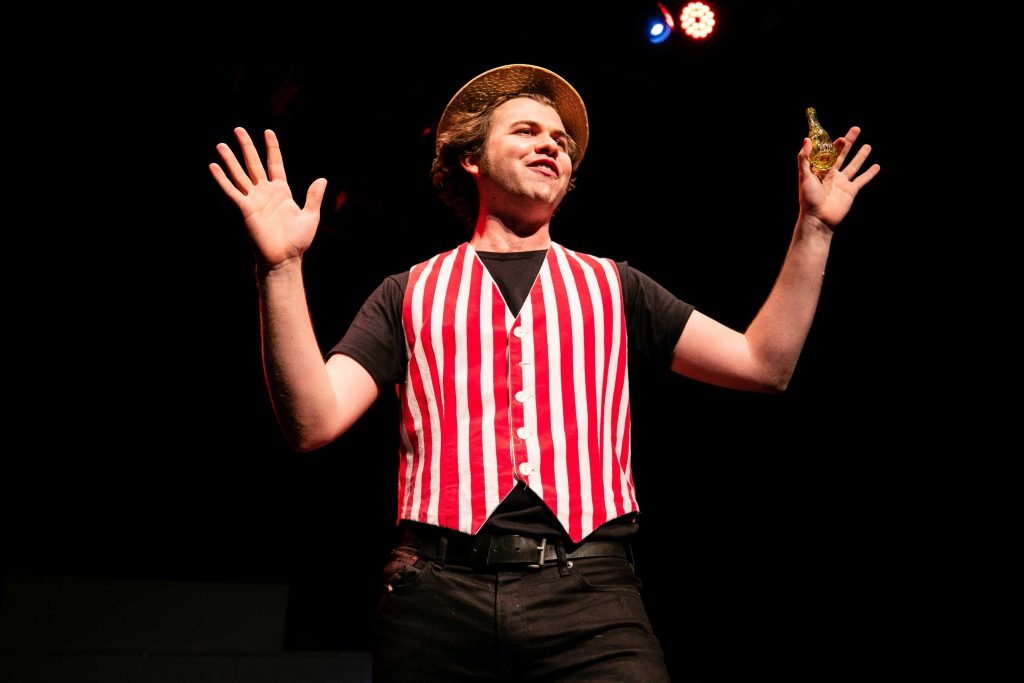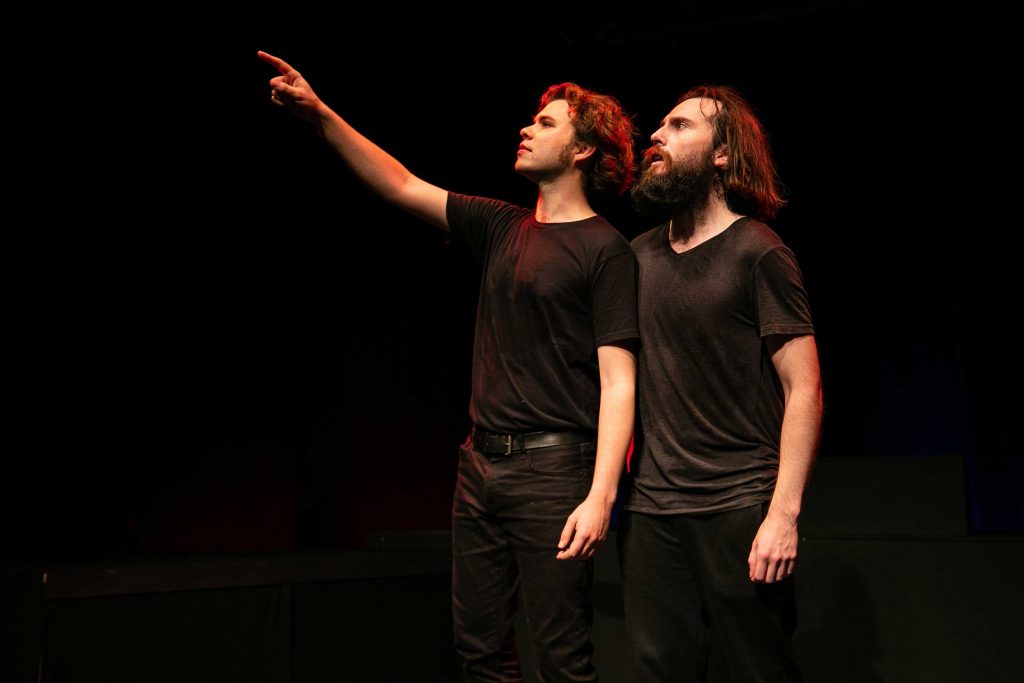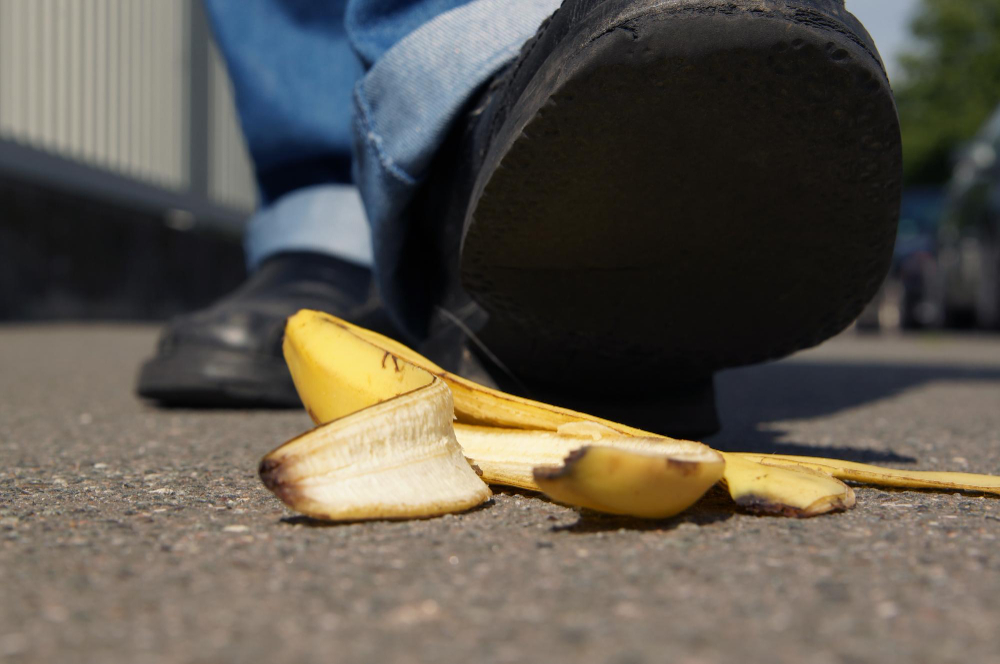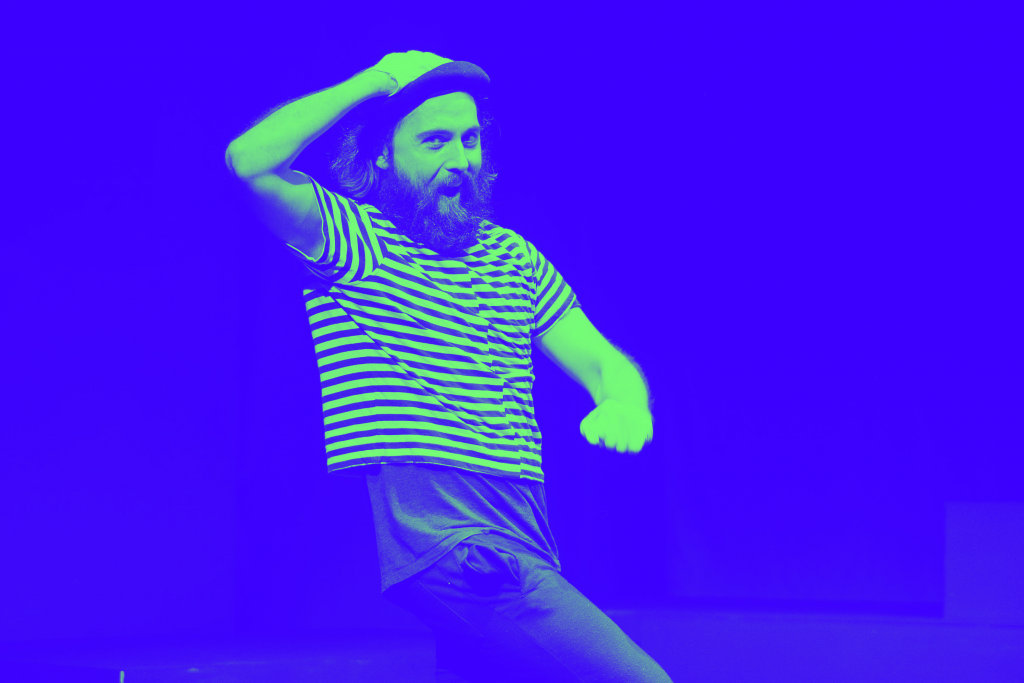
‘The Complete History of Comedy (Abridged)’ // Brisbane Arts Theatre
‘The Complete History of Comedy (Abridged)’ was boisterous.
Robin Williams once said, “in the process of looking for comedy, you have to be deeply honest.” This is what Brisbane Arts Theatre’s latest offering, ‘The Complete History of Comedy (abridged)’, was really all about. A buffoonish, slapsticky, sometimes breathtakingly offensive piece of theatre that attempts to explore not just what comedy “is” but also why it draws us together.
‘The Complete History of Comedy (abridged)’, written by Reed Martin and Austin Tichenor, begins with a family in a cave and proceeds to track a tongue in cheek history of comedy styles, bringing us all the way to the present day. Featuring references to commedia dell’arte, slapstick, improv, standup, and clowning (just to name a few), this was a show that tries to cram something for everyone inside – although it would be extremely ill-advised to bring children to this show. Due to the play’s construction, it often felt scattered and without an underlying focus.
Alicia Blaho’s simple set design of black rostrum and theatre blocks, arranged in a semi-circle, set a blank landscape for the production to riff off of as it travelled through time. This matched well when combined with Frances Foo’s simple costumes (black t-shirts and black jeans/track pants as a base, with the actor adding or discarding a few costume pieces to denote the time and place of the routine).
While the black-on-black motif gave the show a clean backboard to anchor itself on and was well thought through, it felt at times a little like a high school version of the show. This could be avoided by stylising both the set and the costumes a little more. Giving a nod to the “drama blacks” but elevating them into something more intentional and polished.
Comedy is so often underestimated. It is deceptively difficult to do well and is readily dismissed as the “easier” choice. Directors, Jake Desumma and Braydon Mengel, took a largely considered approach in putting together the ensemble and the feel of the show. They worked plenty of Australian and contemporary themes into a very Americanised work.
While the play’s pacing was often appropriate, some segments were rushed and fumbled and the use of blackouts slowed things considerably. Despite most of the costume changes happening onstage they often occurred in darkness and considering the scenes were written to flow into one another, these beats could have been tightened.
A point of serious concern, however, was the amount of slapstick, stage combat, and jumping off of high set pieces that occurred regularly throughout the show, seemingly without proper caution or training. Stage combat, even simple pratfalls or “slapping” an actor in the face, can be dangerous. So moments where tripping jokes were rushed, or where an audience member was invited on stage to participate in a “slap gag” presented totally unnecessary risks.
Far and away the best and most enjoyable aspect of this production was the camaraderie and close dynamic shared between the three players Willem Whitfield, Ben Kasper, and Stephen Snape. The three worked up a sweat bouncing through routines and supported one another admirably. While some of the scene work was not as tightly choreographed as it could have been expected, their sheer energy and cheek carried the show.
Opening night nerves definitely played a part in the delivery of their performances. There were dropped lines, a lot of speaking over one another, and many of the jokes were rushed, which left punchlines falling flat. These downfalls aren’t highlighted to suggest that the production was unsuccessful in hitting the mark. There were many laugh out loud moments throughout. Rather they should serve to illustrate how difficult comedy is, particularly when trying to master a dozen different comedic styles in the one production.
This is the true challenge of Martin and Tichenor’s script. The practitioners of each of these comedic styles will often spend a lifetime mastering a single technique. Riffing on twelve or more in two hours approaches some sort of gleeful insanity. A madness that Whitfield, Kasper, and Snape all embraced with a relish that was frankly contagious.
Overall ‘The Complete History of Comedy (abridged)’ was a laugh-out-loud fun night at the theatre. It was an inventive night of entertainment and while you should never take a child to see this show, if you can accept that there might be some “too soon” moments, there’s plenty else on offer for your enjoyment.
‘The Complete History of Comedy (abridged)’ plays until Saturday, 27 April 2019. Get your tickets at https://www.artstheatre.com.au/historyofcomedyabridged.
Photographs supplied.




